This reflects much of what is happening between the bloggers in the informally-bounded educational technology community. We are discussing our individual concerns and issues with the larger community of “professionals”:
A professional is anyone who does work that cannot be standardized easily and who continuously welcomes challenges at the cutting edge of his or her expertise.
Shaffer goes on to discuss Vigotsky’s zone of proximal development [the gap between a learner’s current development level and the learner’s potential level of development]. I believe that professionals immersed in communities of practice or continuously pushing their informal learning opportunities can have a larger zone of proximal development. They are more open to learning and to expanding their knowledge.
I have had a huge growth in my professional network since I started blogging. These professional conversations are not possible off-line when you live outside a major urban centre, as I do. Today, active involvement in informal learning, particularly through web-based communities, is key to remaining professional and creative in a field.
Learn more / En savoir plus / Mehr erfahren:
http://www.scoop.it/t/21st-century-learning-and-teaching/?tag=Rise+of+the+Professional+Educator
Via
Gust MEES



 Your new post is loading...
Your new post is loading...

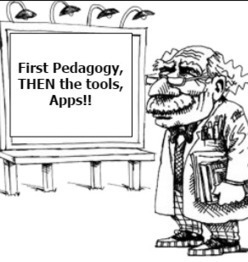

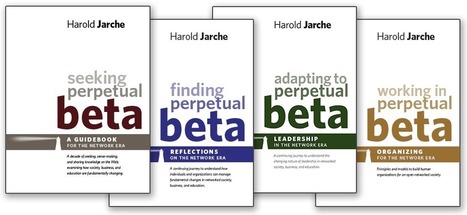


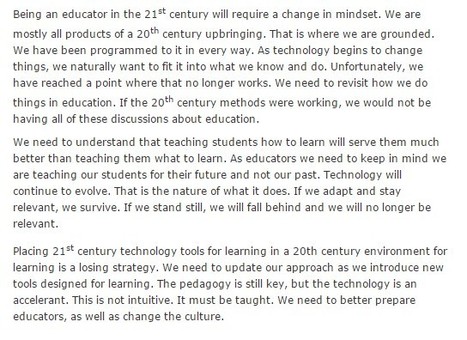



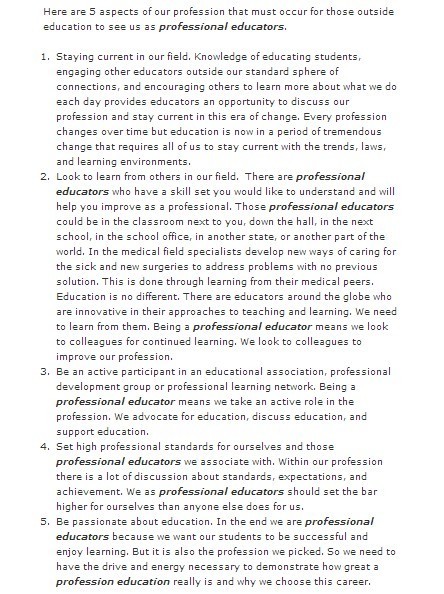



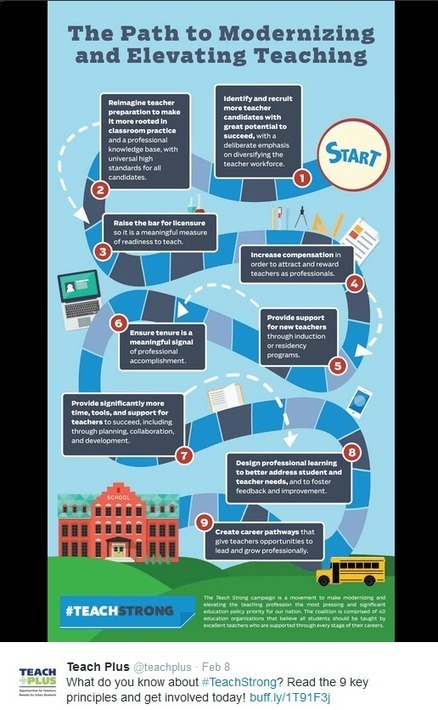

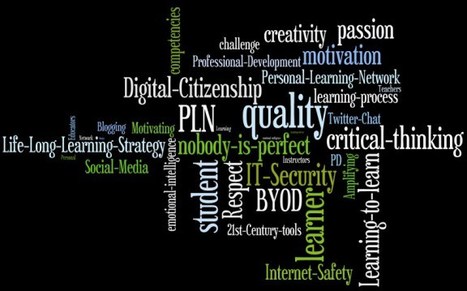









Trend in EDUcation to Make EDUcators TEACHers MORE Professional Since I follow EDUcators, TEACHers on Social Media twitter (2009), I must admit that too many of them (a lot) are on a Mediocrity status, even on a BAD status, which is no more acceptable in 21st Century!! Using Social Media twitter and others…
Learn more / En savoir plus / Mehr erfahren:
http://www.scoop.it/t/21st-century-learning-and-teaching/?&tag=Rise+of+the+Professional+Educator